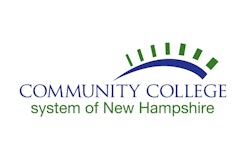COLUMBIA, S.C. — State efforts to save a historically black public college in one of South Carolina’s poorest areas include offering local high school graduates a free two-year degree or technical certificate.
A law signed Friday by Gov. Henry McMaster puts the state Technical College System directly in charge of Denmark Technical College until November 2018.
An audit last fall showed Denmark Tech’s operating balance had plummeted from $9 million to $285,000 in four years, prompting state officials to demand changes at the college that primarily serves residents of rural Allendale, Bamberg and Barnwell counties. Commissioners fired the former president in January. Lawmakers are replacing them with new commissioners who will work with the state agency until the college regains control.
The agency that oversees all of South Carolina’s 16 technical schools recommended the temporary takeover to legislators. Both chambers approved the bill unanimously.
To boost enrollment, the agency worked with local groups to develop “Panther Promise,” which offers up to two years tuition-free to students graduating in the coming weeks from tri-county area schools with at least a 2.0 GPA. How many will do so – and therefore the cost – is unknown.
Fewer than 450 seniors total attend the tri-county’s six public high schools, according to state Education Department data.
“Our end goal is to make sure the college is financially stable and sustainable,” said Kelly Steinhilper, spokeswoman for the state system. “The 45,000 people in those counties need a technical college. You could say they need it more than anyone in the state.”
The counties’ unemployment rates consistently rank among the state’s highest. County hospitals in Bamberg and Barnwell closed in 2012 and 2016, respectively.
Losing Denmark Tech too was not an option, said Rep. Justin Bamberg, a Bamberg County Democrat.
“This school means so much to the community economically – the history behind it,” he said. The key is to “change the overall image of the school to make it a more attractive option so people want to go there.”
A 1947 state law created Denmark Tech as a trade school for black South Carolinians. In 1969, it became part of the statewide technical college system, whose mission includes training workers for local industries. But there’s little industry among the three counties.
Denmark Tech’s financial problems are largely due to enrollment falling from 2,000 students in 2012 to 600 students last fall, without adjustments to employees and course offerings.
“There are programs with one student in it,” Bamberg said. Outdated equipment and underfunding help explain the problem, he added.
For example, students who graduate from Denmark Tech’s welding program can’t get a job at Boeing in North Charleston, Bamberg said. “If you’re not able to train students to work for a company like Boeing, you’re too far behind in time.”
Part of the state agency’s task is to evaluate which programs to potentially boost or discontinue.
“It’s going to be great for the college and community,” said interim President Chris Hall, previously business dean at Sumter’s Central Carolina Tech. “With the state directly involved, we’ll be able to get a lot of the resources we need.”
The Panther Promise initiative represents the first time the state is funding a free two-year degree, though taxpayers are sharing the cost with Denmark Tech’s alumni association, its foundation, and the local economic development alliance. It will pay tuition not covered by other scholarships or grants. Similar programs at other rural technical colleges have been funded by county governments, Steinhilper said.
In 2015, the Legislature fired and replaced the entire board at South Carolina State University, 30 miles away in Orangeburg, due to mounting debt and financial mismanagement. Similarly, problems stemmed from falling enrollment without corresponding cuts. But unlike SC State, Denmark Tech did not go into debt or receive accreditation warnings.









